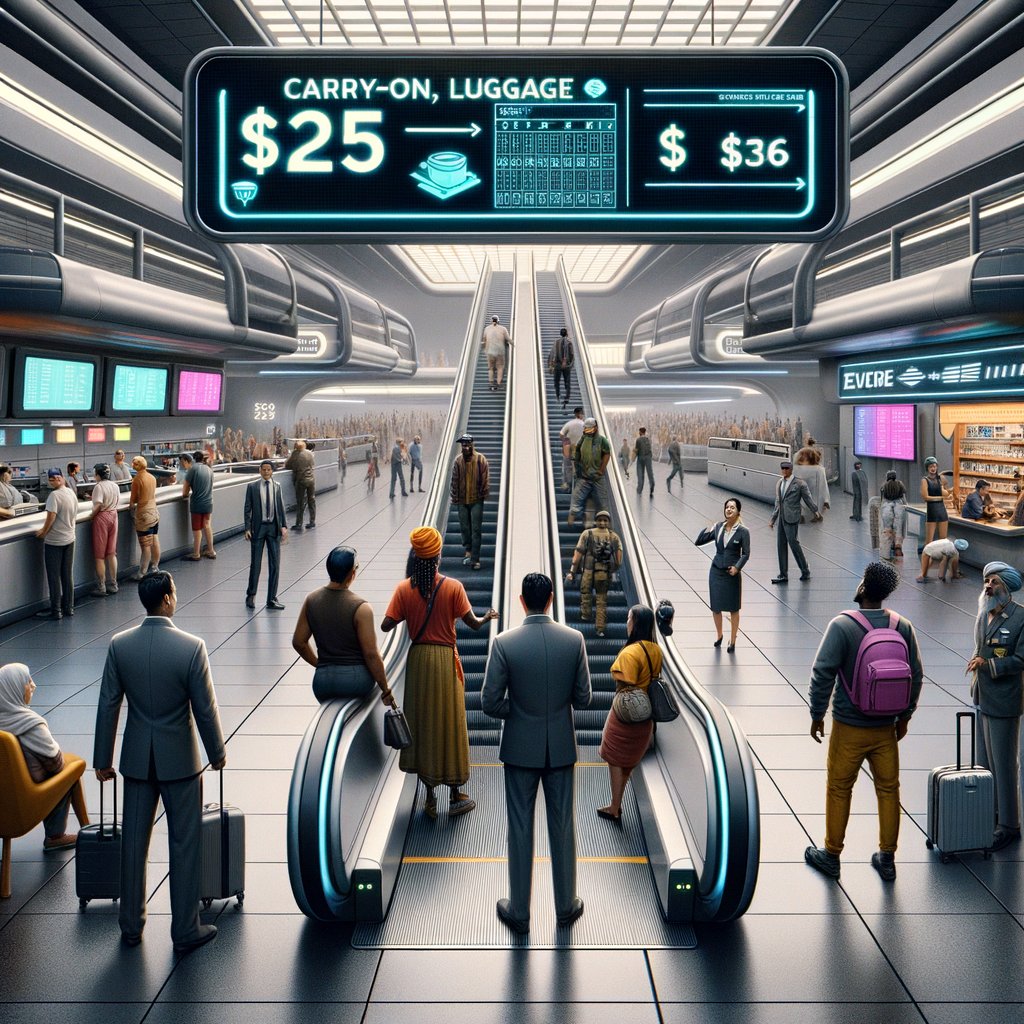Image created by AI
Air Canada's New Carry-On Fee Policy Fuels Discontent Among Travelers
In a controversial move that aligns with the emerging global trend among budget airlines, Air Canada has declared that starting January 3rd, it will impose a fee on basic economy passengers for carrying on bags larger than a small handbag or backpack. This decision has sparked a significant backlash from both consumers and Canadian lawmakers, criticizing the airline for its excessive penalization of budget-conscious travelers.
Under the new policy, passengers traveling within the Americas can expect to pay $25 for their first piece of carry-on luggage, which includes items like roller bags and large backpacks. Those needing an additional carry-on will be subjected to a further fee of $36. Moreover, travelers who overlook paying this fee in advance will face an escalated charge of $46 at the airport.
This fee introduction by Air Canada is seen as an effort to standardize its fare structure in line with other Canadian carriers that have also adopted similar pricing strategies. However, it diverges from the traditional inclusivity that major airlines have offered, especially concerning the basic conveniences provided in ticket prices.
Federal Transport Minister Anita Anand voiced her disapproval of the policy. In an impassioned response, she highlighted the unfair burden these fees place on ordinary passengers. The minister's reaction reflects a broader sentiment among the public and government officials who view this policy as an unfair penalty on travelers choosing lower-cost fare options.
Additionally, starting January 21, Air Canada will also begin charging low-fare customers for changing their automatically assigned seats at check-in. This policy revision had previously faced intense opposition, signaling ongoing dissatisfaction among travelers with the airline's approach to service charges.
This new model follows the precedent set by U.S.-based budget carrier Frontier Airlines, known for its strict carry-on baggage fees and penalties for passengers who attempt to bypass these rules. Frontier's CEO, Barry Biffle, recently defended the policy by comparing offenders to shoplifters, asserting that charging for carry-ons ensures fairness for all passengers.
The introduction of these fees by Air Canada thus not only highlights a growing trend among airlines to increase ancillary revenue but also raises questions about the fairness and transparency of such charges, particularly for low-cost travelers who historically opted for basic economy fares to avoid extra costs.
As the policy sets to be implemented, the wave of discontent among consumers suggests that Air Canada may need to brace for a potential downturn in passenger satisfaction and possibly even in patronage, as travelers might begin looking for more cost-effective and transparent alternatives.










